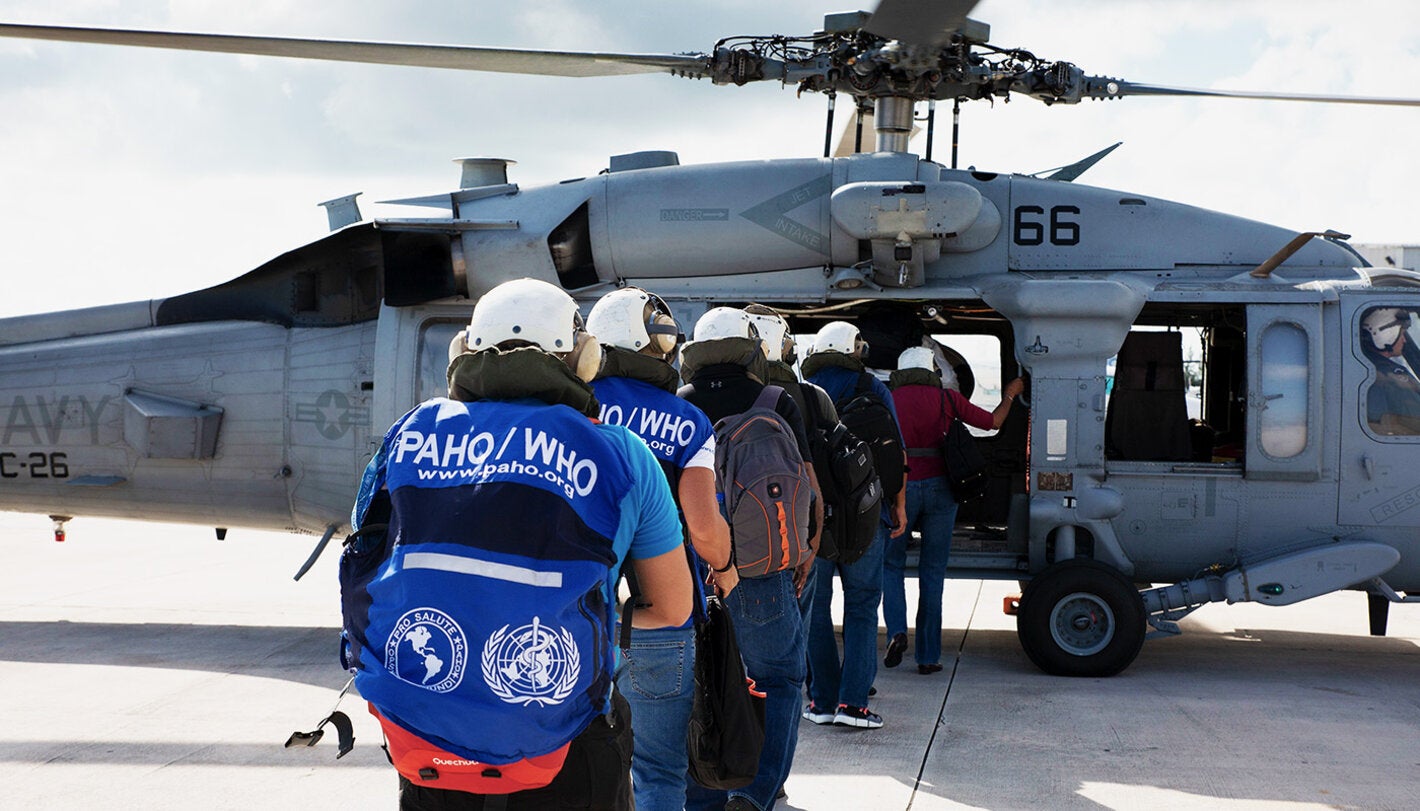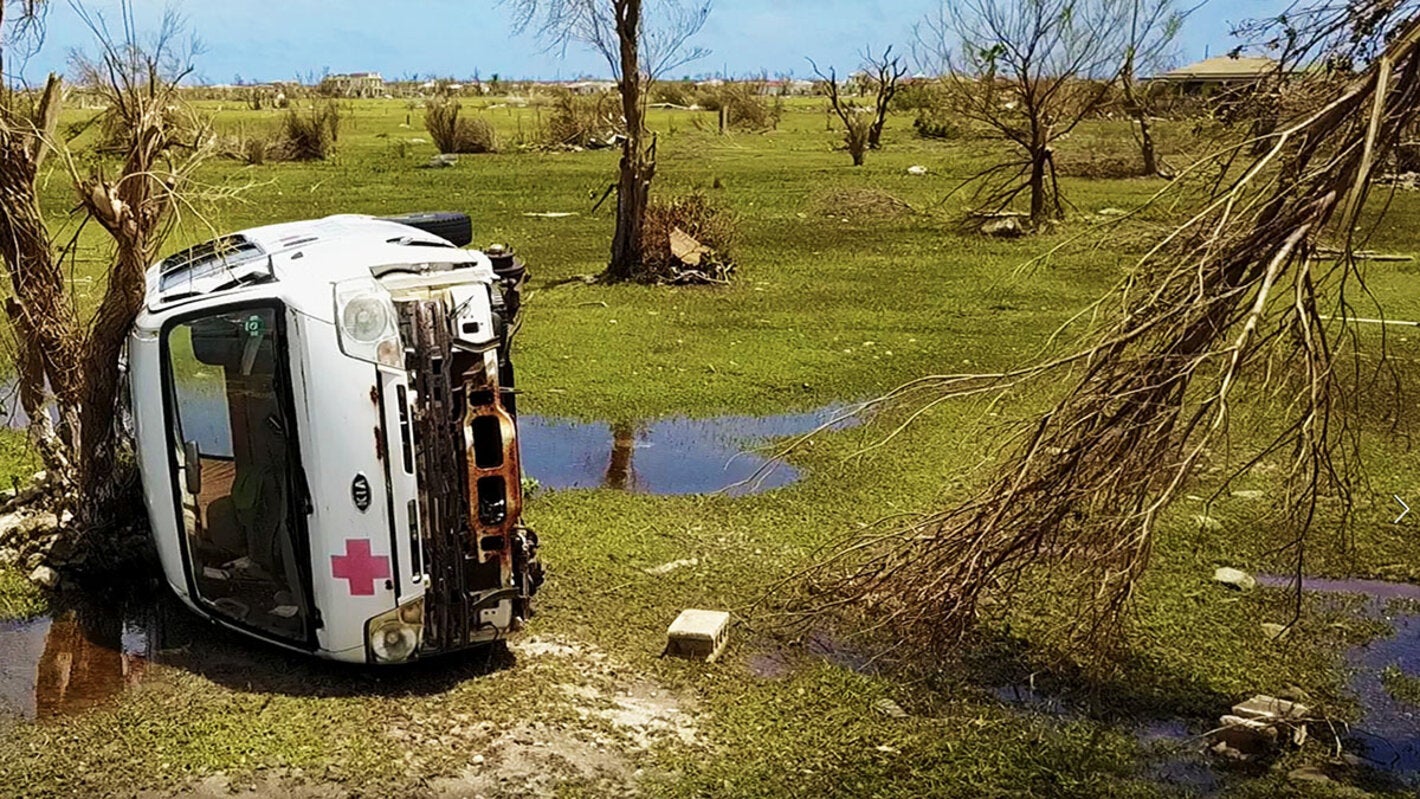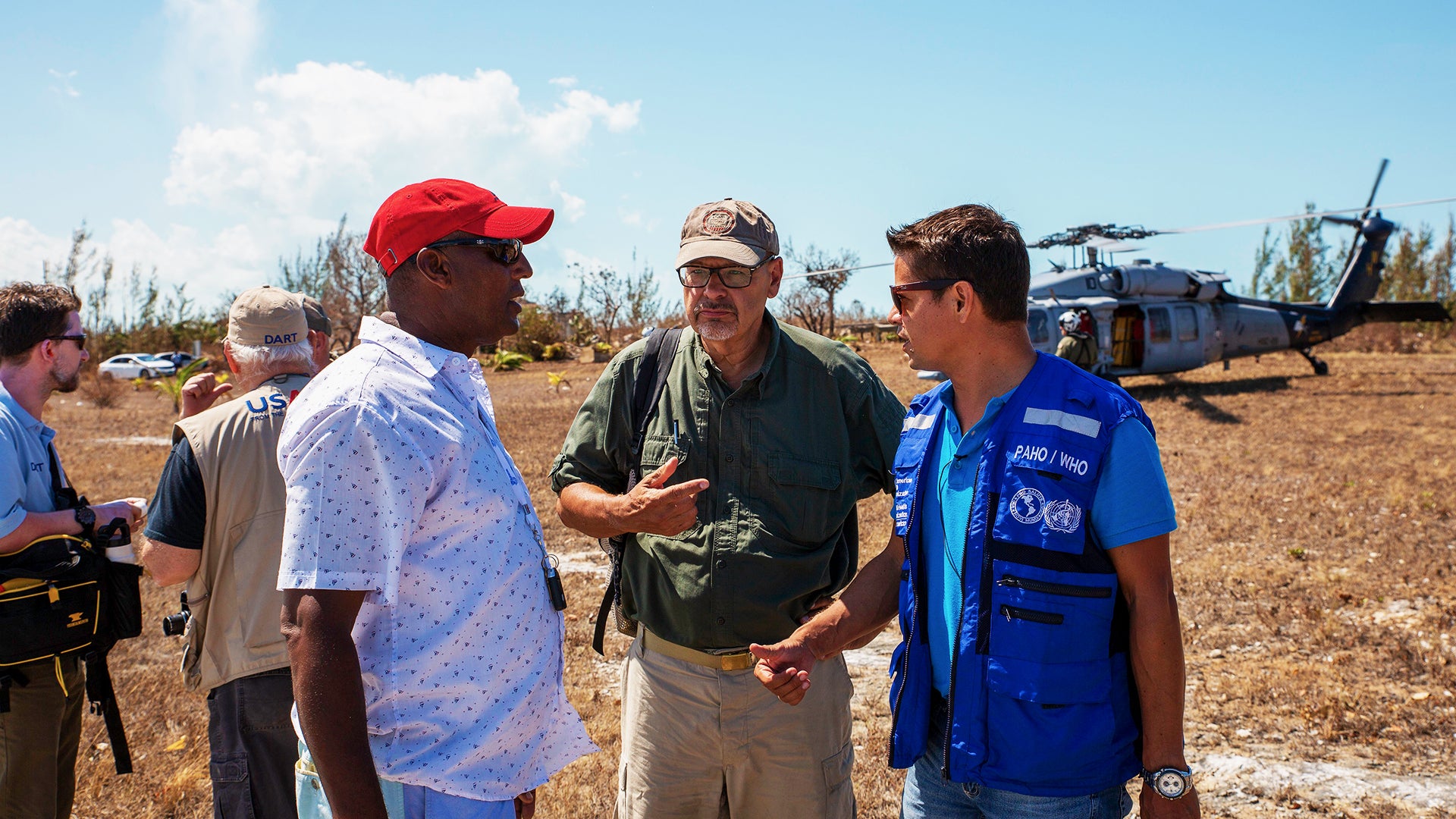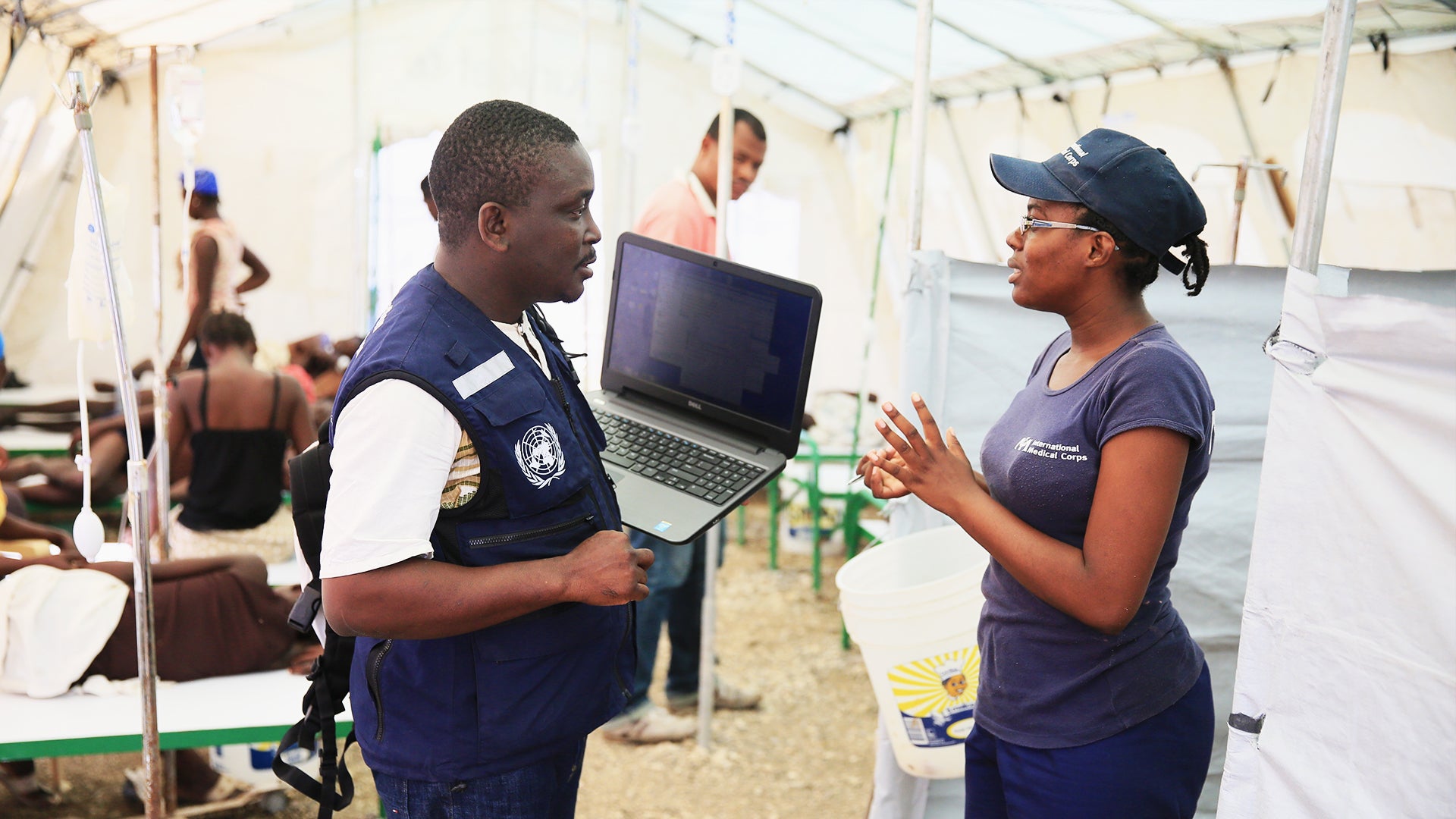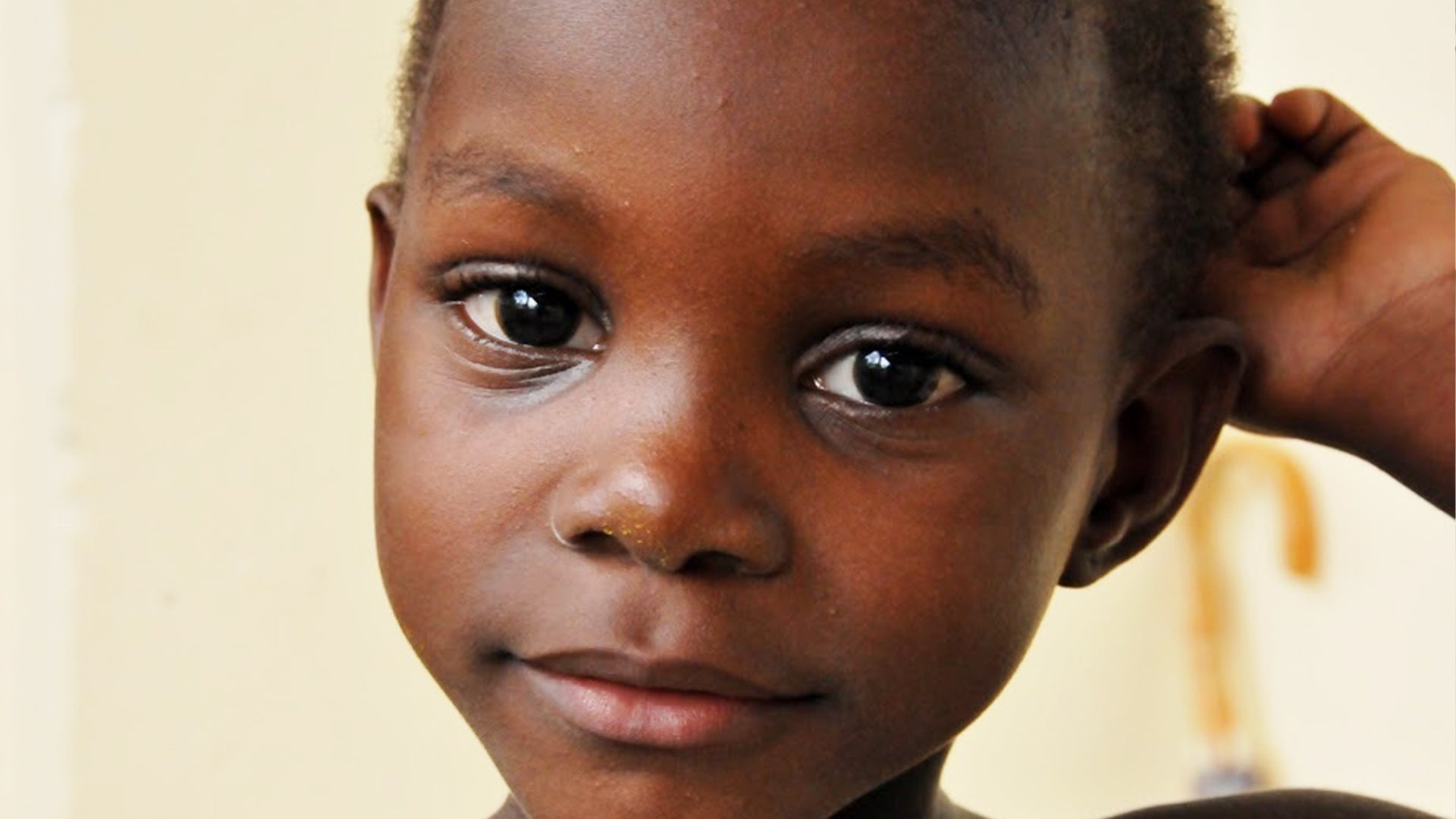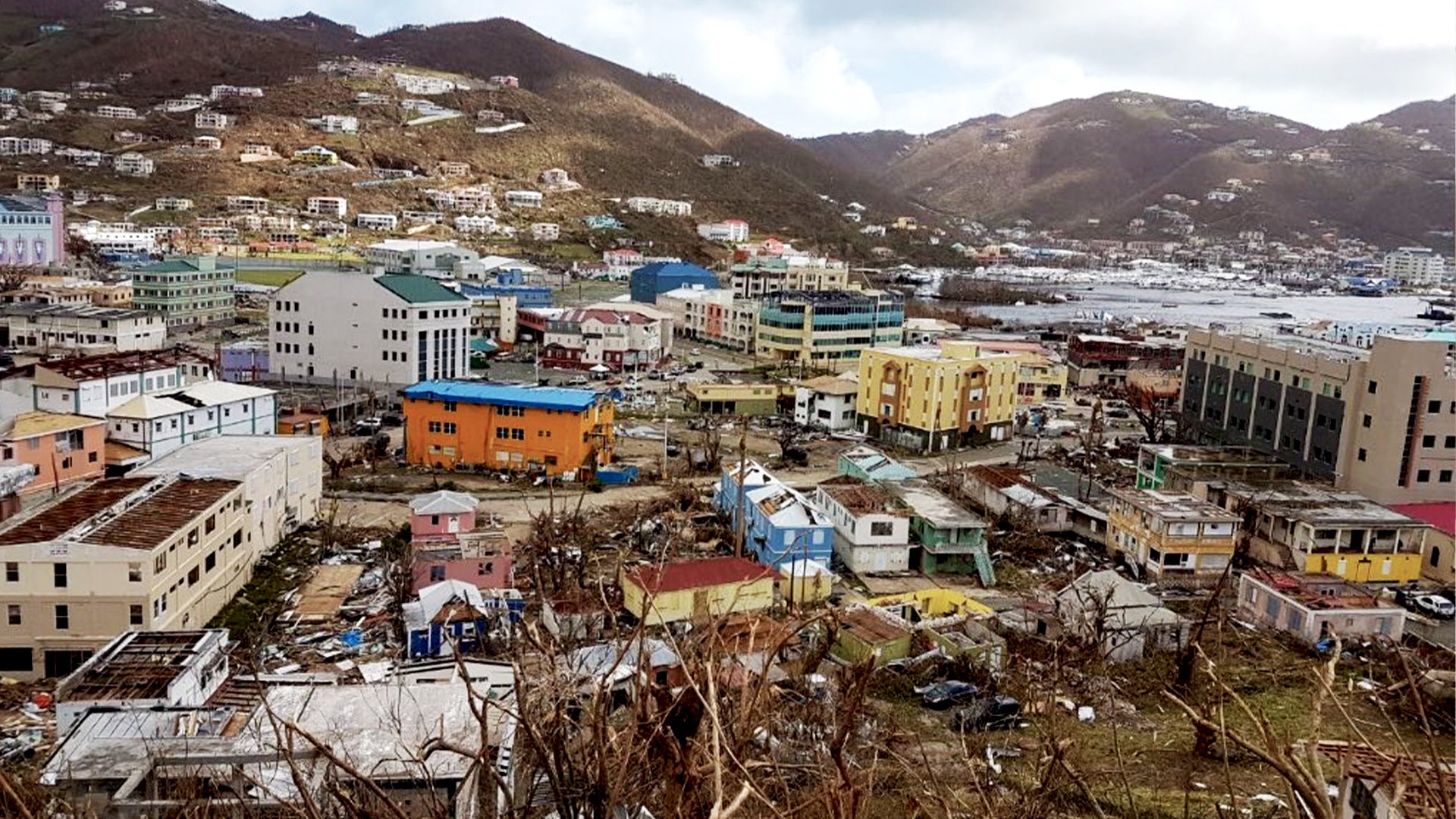The Health Emergencies Department focuses on strengthening the health sector's capacities in prevention, risk reduction, preparedness, surveillance, response, and early recovery for emergencies and disasters related to any hazard (natural, man-made, biological, chemical, radiological and others) and, when national capacities are overwhelmed, to lead and coordinate the international health response to contain disasters, including outbreaks, and to provide effective relief and recovery to affected populations.
The Department strengthens hazard-specific capacity in countries in relation to a range of diseases with the potential to cause outbreaks, epidemics, or pandemics, including water-borne diseases, zoonoses, chemical, and radiologic emergencies, natural hazards, and conflicts. It considers a human security approach to building coherent intersectoral policies to protect and empower people to increase community resilience against critical and pervasive threats.
We operate under the principles of humanity, neutrality, impartiality and independence in serving populations affected by emergencies, and disasters. It operates within the broader humanitarian architecture with a consistent aim of strengthening local and national capacity.
PAHO’s Health Emergencies Department’s work focuses on strengthening the health sector's capacities in prevention, risk reduction, preparedness, surveillance, response, and early recovery for emergencies and disasters related to any hazard (natural, man-made, biological, chemical, radiological and others) and when national capacities are overwhelmed, to lead and coordinate the international health response to contain disasters, including outbreaks, and to provide effective relief and recovery to affected populations. Partnering with PAHO given our mandate, on the ground presence and network and specialized country level expertise is the most effective mechanism to ensure that the region of the Americas is adequately prepared for a health emergency.
PAHO is actively engaged at the highest level with the national government across the Region and actively endeavors to develop new partnerships with a variety of existing and new partners across sectors. As part of these efforts, on Sept 10-11th 2019, the PAHO Health Emergencies Partners’ Forum 2019 took place at PAHO HQ in Washington, D.C. In addition to these types of events, regular calls and meetings are organized as part of the PAHO Health Emergencies Partners Consultative Group.
The consultative group is a platform where new and existing partners work together on actions related to preparedness and response across the Americas. Partnering with PAHO can happen both, during peacetime (when there isn’t an active health emergency or disaster) or during a health emergency or disaster. While partnering with PAHO during a health emergency or disaster is often streamlined to ensure that resources help support the most pressing and time-sensitive needs in the field, all partnerships must be compliant with the values and objectives of the PAHO/WHO and not be linked to the weapons or tobacco industry. Along with these considerations, partnerships must also align with the framework of engagement with non-State actors (FENSA).
The work of PAHO’s Health Emergencies Department is guided by both PAHO Strategic Plan 2025 and WHO’s 13th General Programme of Work 2019-23.
Specifically, the Emergencies department will work achieve the outcomes below:
- Preparedness and Risk Reduction: Outcome 23
- Epidemic and Pandemic Prevention and Control: Outcome 24
- Detection and Response: Outcome 25
United States
- USAID
- Department of Defense
- Department of State
- National Health Institute
- Center for Disease Control
Canada
- Foreign Affairs Canada
- Public Health Agency of Canada
- Health Canada
Spain
- AECID
- AACID
European Union
United Kingdom
Netherlands
Switzerland
The PAHO Health Emergencies Partners Consultative Group is an invite-only collaboration platform where new and existing partners work on actions related to preparedness and response across the Americas. For more information please click here.
Serving as the Regional Office for the Americas of the World Health Organization and as the health organization of the Inter-American System, PAHO/WHO has the regional mandate for working with countries to ensure that countries are prepared for and able to respond to health emergencies and disasters.
Partnerships with PAHO/WHO have an immediate positive impact on the reach and levels of support the countries receive as they prepare for and respond. However, the greatest impact of the Investments made in health emergency preparedness and response have a long-term multiplier effect, and they not only help save lives but more directly protect societies and economies.
- Health Emergency Information and Risk Assessment
- Infectious Hazard Management
- Country Health Emergencies Preparedness and International
- Health Regulations
- Emergency Operations
- Disaster and Risk Reduction and Special Projects
Success Stories

